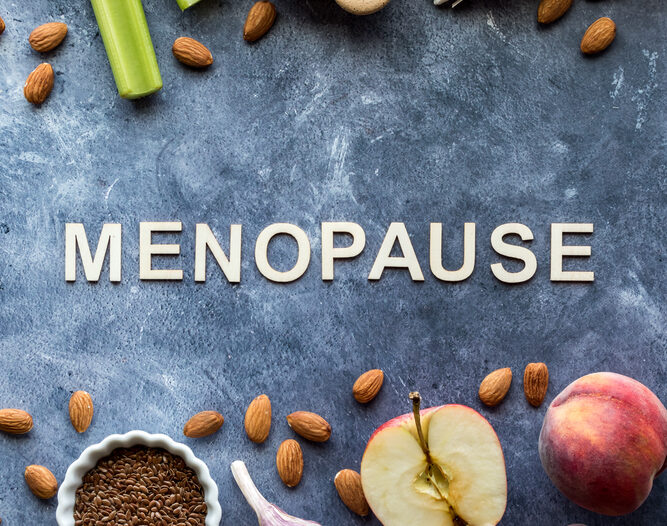
In the complex puzzle of midlife women’s health, nutrition and lifestyle often serve as the missing pieces. While we may focus on managing symptoms or seeking medical interventions, we sometimes overlook the profound impact that our daily habits and dietary choices can have on our well-being, especially during menopause. By recognising the power of nutrition and lifestyle in supporting our health, we can unlock a wealth of opportunities to thrive during this transformative stage of life.
As women journey through midlife, they often find themselves facing a myriad of health challenges. From hormonal fluctuations to increased stress levels, these changes can significantly impact their well-being. However, amidst these challenges lies a powerful tool that can make a profound difference: nutrition. What you eat plays a crucial role in supporting overall health and addressing common female health issues.
At the heart of many female health problems lie several interconnected mechanisms: stress, hormone imbalance, nutritional deficiencies, and exposure to toxins. Understanding the impact of each of these factors is essential in promoting optimal health for midlife women.
Stress
Stress is a ubiquitous part of modern life and can exert a profound influence on women’s health during midlife. Chronic stress triggers a cascade of physiological responses, including the release of stress hormones such as cortisol, which can disrupt hormonal balance and contribute to a range of health problems. Research suggests that chronic stress is associated with an increased risk of cardiovascular disease, metabolic disorders, and mental health issues such as anxiety and depression. Furthermore, stress can exacerbate symptoms of menopause, including hot flashes, sleep disturbances, weight gain, and mood swings.
Hormone Imbalance
Hormonal fluctuations are a hallmark of midlife, particularly during perimenopause and menopause. Changes in oestrogen, progesterone, and testosterone levels can lead to a myriad of symptoms, including hot flashes, night sweats, vaginal dryness, and mood swings. Hormone imbalance can also increase the risk of osteoporosis, cardiovascular disease, and cognitive decline. Research suggests that lifestyle factors, including diet, exercise, and stress management, play a significant role in modulating hormone levels and mitigating symptoms of menopause. Additionally, certain dietary components, such as phytoestrogens found in soy products and lignans in flaxseeds, may help support hormone balance naturally.
Nutritional Deficiencies
Adequate nutrition is essential for maintaining optimal health and well-being, particularly during midlife when nutrient needs may change. Nutritional deficiencies can arise due to factors such as decreased absorption of nutrients, changes in metabolism, and inadequate dietary intake. Common deficiencies among midlife women include calcium, vitamin D, magnesium, and omega-3 fatty acids, which are crucial for bone health, mood regulation, and cardiovascular health. Research suggests that a diet rich in fruits, vegetables, whole grains, lean proteins, and healthy fats can help meet nutrient needs and support overall health during midlife.
Toxins
Exposure to environmental toxins is a growing concern for women’s health, with potential implications for hormone balance, reproductive health, and chronic disease risk. Toxins found in food, water, air, and personal care products can disrupt endocrine function, impair detoxification pathways, and contribute to oxidative stress and inflammation. Research suggests that certain dietary and lifestyle interventions, such as choosing organic produce, minimising exposure to plastics and synthetic chemicals, and supporting liver detoxification through nutrient-rich foods and herbal supplements, can help reduce the toxic burden on the body and support overall health during midlife.
Recommendations for Supporting Midlife Women’s Health
Stress Management: Adopt stress-reducing techniques such as mindfulness, meditation, yoga, and regular exercise to promote relaxation and resilience in the face of stress.
Hormone Balance: Focus on a balanced diet rich in phytoestrogens, omega-3 fatty acids, and antioxidants to support hormone balance and alleviate symptoms of menopause.
Nutrient-Rich Diet: Choose a whole-food, that includes a variety of fruits, vegetables, whole grains, legumes, nuts, and seeds to provide essential nutrients and support overall health during midlife.
Toxin Avoidance: Learn about the sources of environmental toxins and adopt lifestyle changes such as choosing organic produce, using natural cleaning and personal care products, and minimising exposure to pollutants to reduce the toxic burden on the body.
In conclusion, by recognising the importance of nutrition and lifestyle in supporting midlife women’s health, we can empower ourselves to take control of our well-being and thrive during this transformative stage of life. Let us embrace the power of food, movement, and mindful living as we navigate the journey of menopause with grace and vitality. And remember, further support and guidance is available to help you along the way. Start your journey here with my menopause guide – lots of top tips on what to eat and why.

